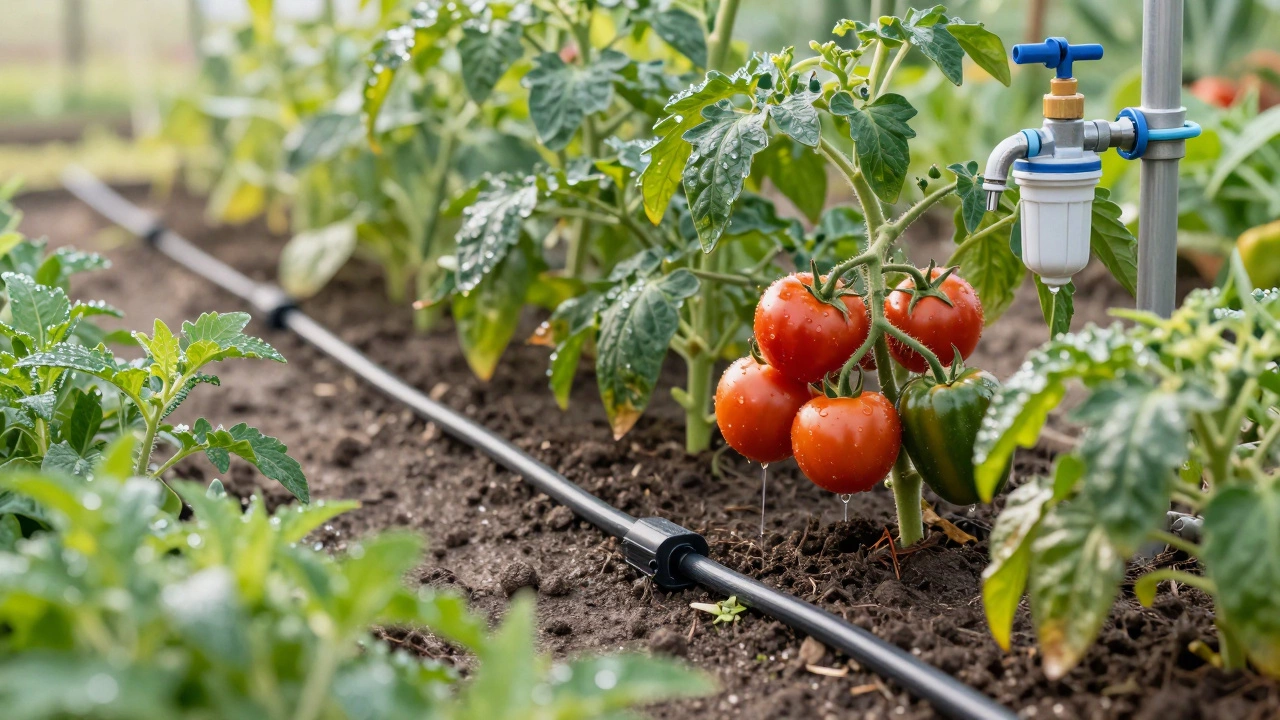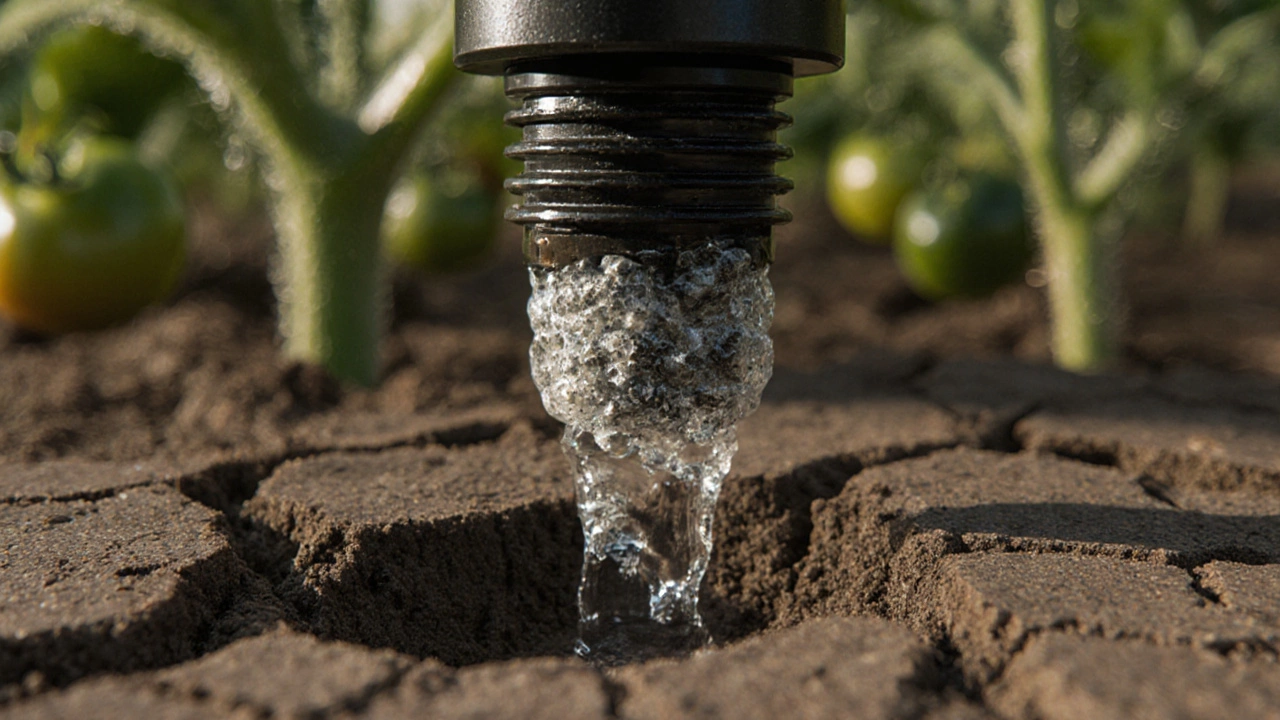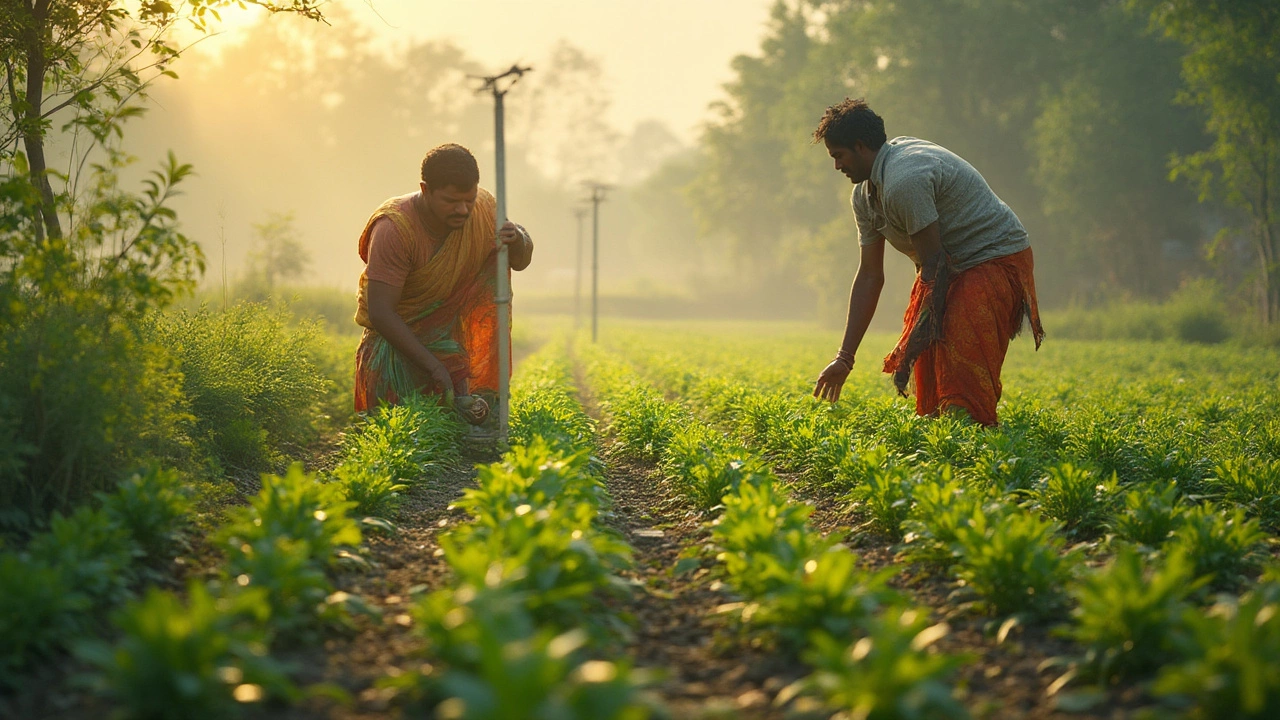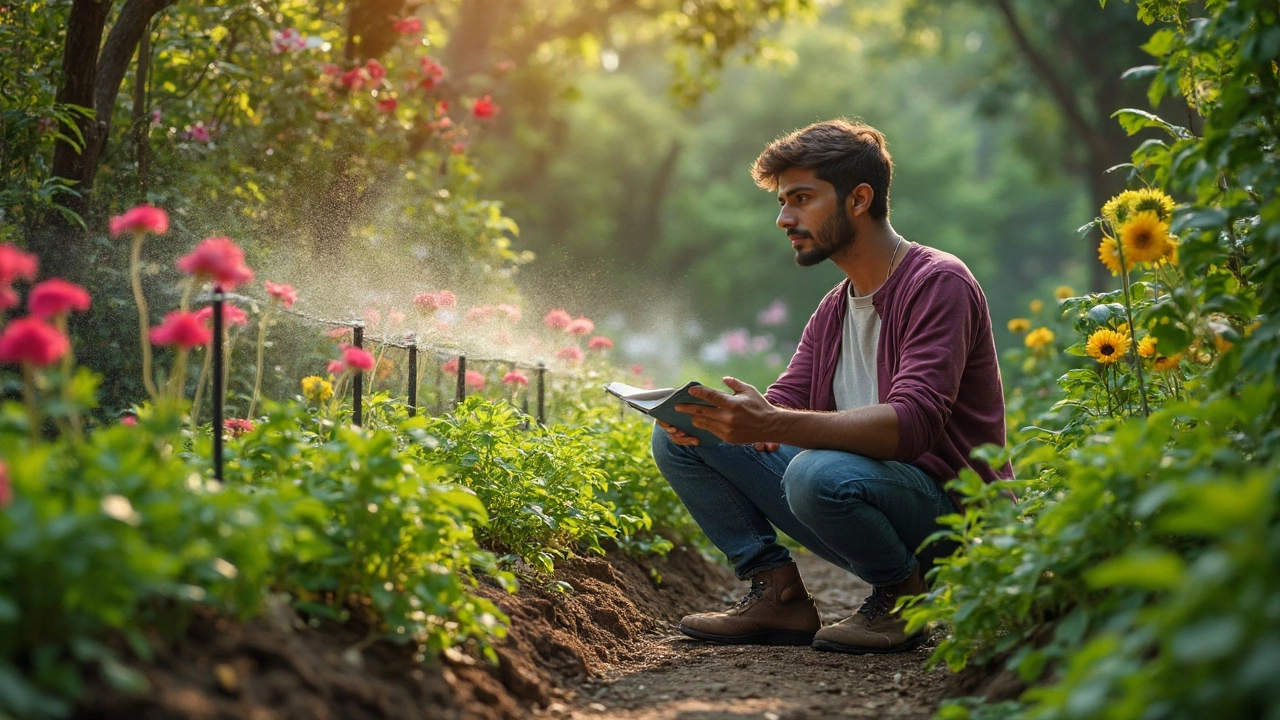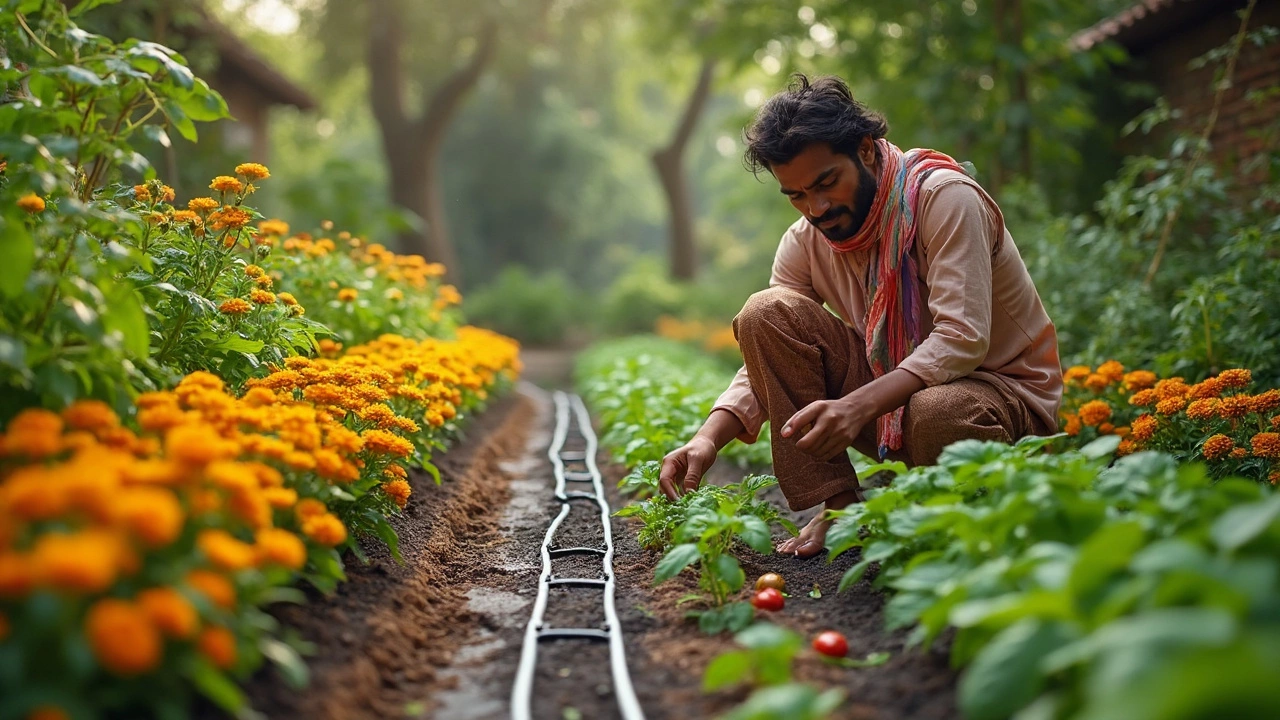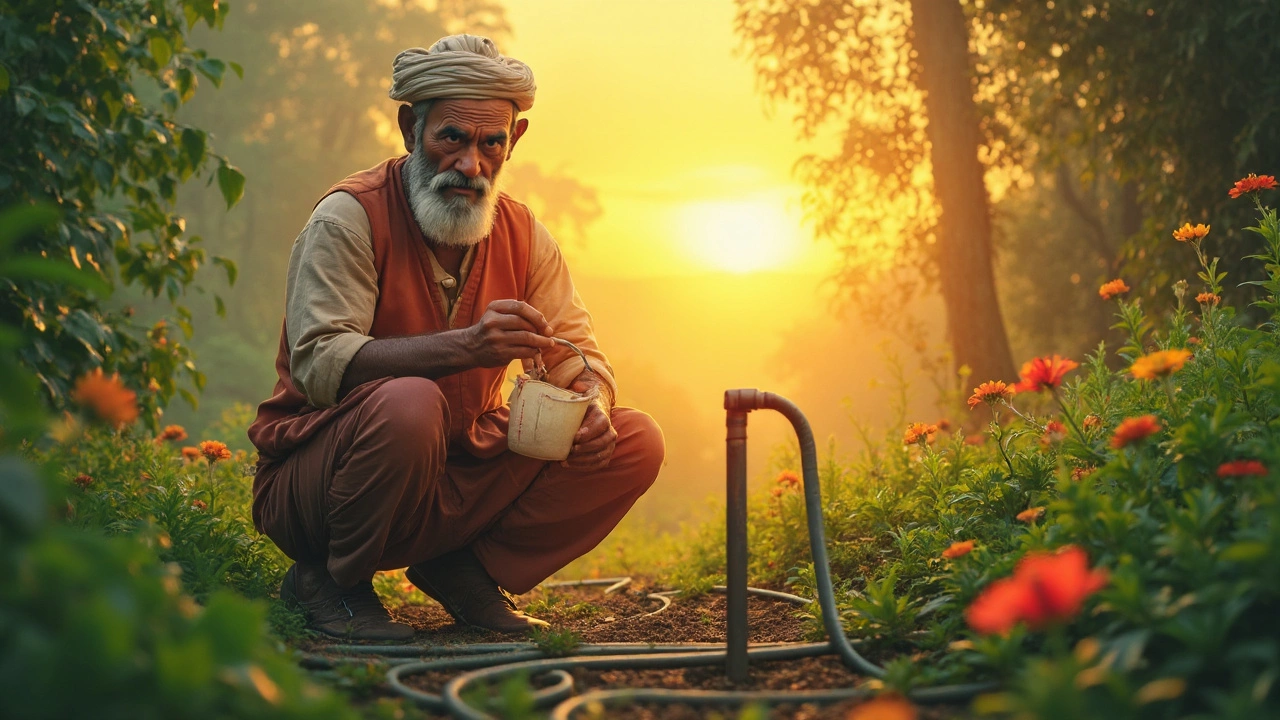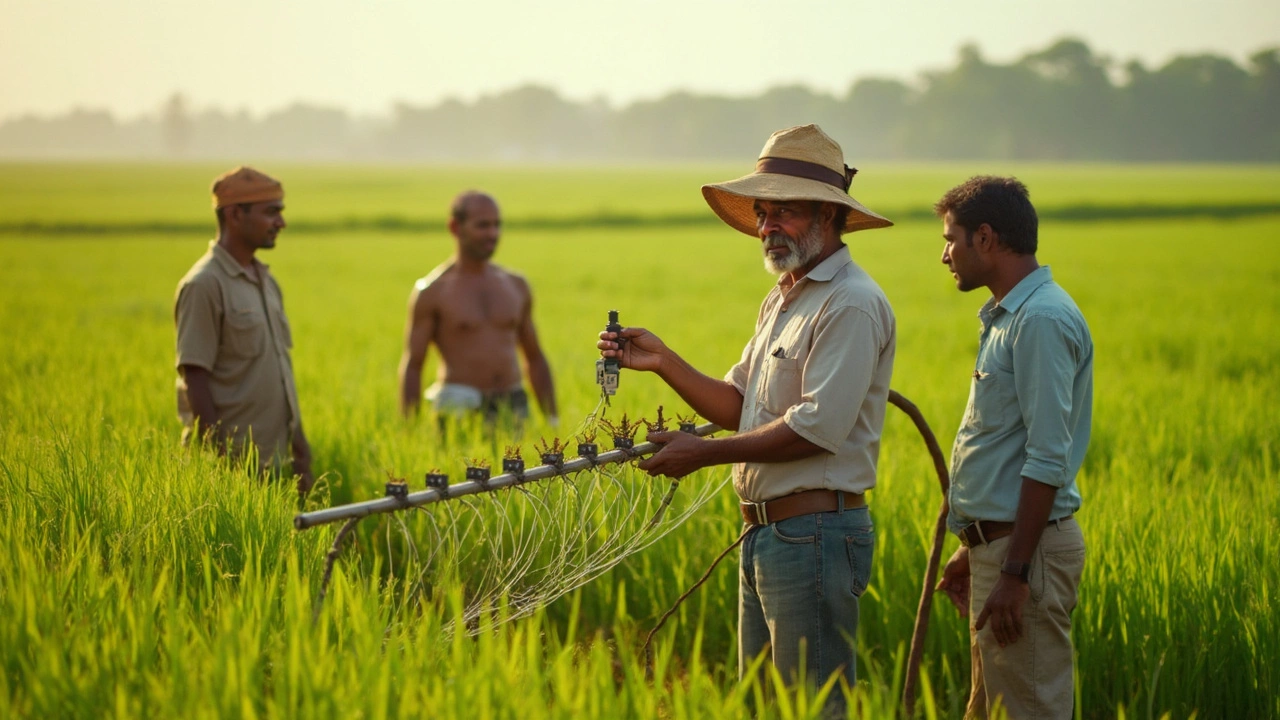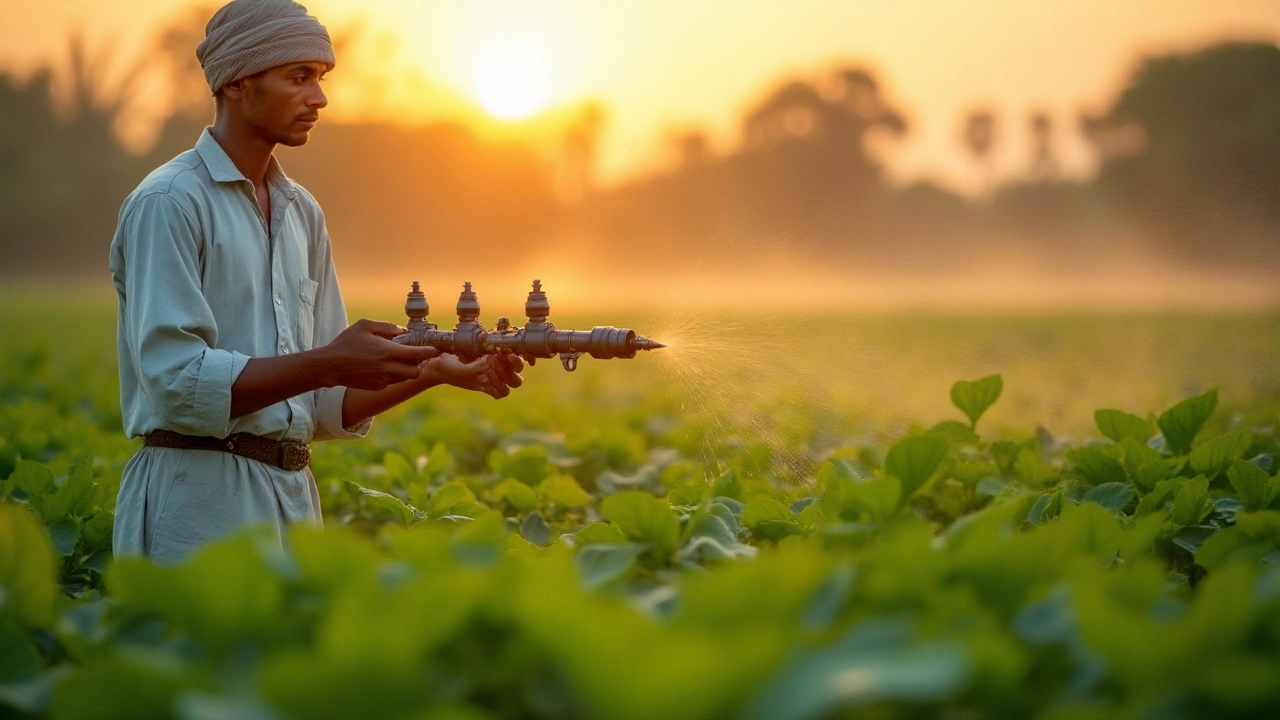Drip irrigation kits save water, time, and boost garden yields. Learn if they're worth the cost for UK gardens, what to buy, how to install, and how to maintain them for long-term success.
Irrigation Systems: Smart Watering Solutions for Indian Gardens and Farms
When you think about irrigation systems, methods used to deliver water to crops and plants in a controlled way. Also known as watering systems, they’re the backbone of every healthy garden and farm in India’s unpredictable climate. Whether you’re growing tomatoes on a balcony or managing a field of wheat, the right irrigation system makes all the difference between a good harvest and a lost season.
drip irrigation, a method that delivers water slowly and directly to plant roots through tubes and emitters. Also known as micro-irrigation, it’s one of the most efficient ways to use water—especially in places like Rajasthan or Tamil Nadu where every drop counts. But here’s the thing: even though it saves up to 60% more water than traditional flooding, most farmers still don’t use it. Why? It’s not because it doesn’t work. It’s because of cost, confusion, and myths about how hard it is to install. And if you’ve ever had a drip emitter, a small device that controls the flow of water from a tube to a single plant. Also known as dripper, it’s the tiny but critical part that keeps your system running. clog up or leak unevenly, you know how frustrating it can be. These aren’t just minor annoyances—they’re the reason people give up on drip systems altogether.
It’s not just about buying parts. It’s about understanding how much water your plants actually need, how many emitters fit in a zone, and whether running lines under landscape fabric helps or hurts. A single inch of water doesn’t mean the same thing across different setups. One garden might need 2 gallons per square foot, while another needs double that. And if you don’t know how to calculate that, you’re either wasting water or starving your plants. The good news? You don’t need a degree in engineering to get this right. Real gardeners and farmers across India have cracked the code—using simple tools, common sense, and a few smart tweaks.
What you’ll find below aren’t theory-heavy articles. These are real fixes from people who’ve been there: clogged lines, uneven watering, wrong emitter counts, and fabric mishaps. You’ll learn how to spot problems before they kill your plants, how to set up zones so every plant gets what it needs, and why some of the most popular advice is actually wrong. No fluff. No jargon. Just clear, practical steps you can follow this week to make your irrigation system work—finally—for you.
Drip emitters are efficient but prone to clogging, uneven flow, and damage. Learn the common problems and how to fix or prevent them to keep your garden healthy and water-efficient.
Drip irrigation saves water and boosts yields, but it’s still rare in many areas. Let’s get real about why and bust some myths around it.
Figuring out how many drip emitters you need per zone can make or break your garden's success. This guide breaks down how to calculate just the right amount without wasting water or risking thirsty plants. You’ll learn about water flow, plant needs, and even see how to avoid common mistakes. Expect practical tips and real-life examples you can use right away. Save money, save water, and help your plants thrive.
Ever wondered if you should run your drip irrigation lines under landscape fabric? This article tackles the pros and cons, explains how setup choices impact your garden, and dishes out tips for simple, long-lasting maintenance. Skip the guesswork with real-world advice, plus doable ways to avoid clogging and water waste. Perfect for DIY gardeners looking for practical irrigation hacks.
Drip irrigation is a smart way to water plants, but figuring out how much water an inch of irrigation delivers can be tricky. This article breaks down the gallon-to-inch conversion, helping gardeners optimize their watering strategy. Knowing how much water is applied ensures efficient use and healthier plants. Get ready to demystify this aspect of drip irrigation with relatable examples and practical advice.
Most farmers still shy away from drip irrigation despite its efficiency. This article delves into the challenges and difficulties farmers face with adopting this water-saving technique. From understanding initial costs to the nuances of installation, get insights into why drip irrigation remains underutilized in agriculture.
Drip irrigation is a water-efficient method that uses emitters and drippers as key components. Understanding the difference between these can help optimize water distribution in gardens and farms. Emitters are devices that regulate water flow to plants, while drippers are often interchangeable terms but refer to specific styles within the emitter category. This article explores their distinctions, applications, and tips for choosing the right one for your needs.
